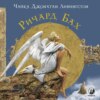Читать книгу: «Best Stories of the 1914 European War», страница 3
LIGHT BRIGADE OUTDONE
Returning from the front a correspondent of the London Times sends the following under a Paris date:
“Near Charleroi I heard some stories of the bravery of the French soldiers. The Germans were bombarding the city. The French troops made what amounted to a mediæval sortie, but, finding the enemy in much greater force than was expected, were compelled to withdraw. The bombardment continued relentlessly, whereupon the French Turcos – picked troops from Algeria – debouched from the town, and, with a gallantry which surely must live in history, charged the German battery, bayoneting all the German gunners.
“Their losses, it is said, exceeded those of the Light Brigade at Balaklava. Of a whole battalion only 100 men, it is reported, returned unscathed. Their bravery, however, was powerless against the German advance, which crept, foot by foot, through the outskirts of Charleroi to the very heart of the town.
“There in the narrow streets the carnage was indescribable. A French infantryman told me that the roads became so jammed with dead that the killed remained standing upright where they had been shot, supported by their dead comrades.”
WOMAN GETS COUNT’S SWORD
This incident occurred during the fighting before Charleroi, cables a war correspondent:
“Yet another band of Uhlans was captured Sunday at the gates of Courtrai by a detachment of French chasseurs. Their chief officer was found to be Lieut. Count von Schwerin, a nephew of the Kaiser. The young commander is only 25 years old and has been married only seven months. The officer commanding the French detachment found that the Count’s sword was a present from the Emperor himself and bore an inscription to that effect on the blade.
“The Count’s saber, belt and helmet were brought to-day to St. Ouen and presented to the wife of the officer who made the capture. The sword was blood-stained and its point twisted.”
“CRIME TO SPARE SPY’S LIFE”
The correspondent of the Paris Temps, who had occasion to follow them on the way to the front, is loud in his admiration of the British soldiers’ discipline, equipment and commissariat arrangements. But what he admired most was the summary methods of dealing with spies, every one convicted being shot immediately. A British captain explained his attitude through a French interpreter as follows:
“You French pride yourselves on your humanity in cases where humanity is a mere useless sentimentality. To spare the life of a spy by postponing his trial is a crime against our own troops. A spy may be able by some means to convey a harvest of news to his own side, so as to enable the enemy to surprise us precisely when we hoped to surprise him. In such cases, inopportune indulgence may cost the lives of several hundreds of our own troops.”
CHANGE SCHMIDT TO SMITH
Naturalized German shopkeepers in London are taking unusual precautions against possible boycotts. The following notice, posted on a bakery in Soho, is being copied by other dealers:
“Two hundred and fifty dollars reward will be given to any charitable institution upon the discovery by any persons of adulteration in the bread sold in this establishment.
“God bless our King and country. The proprietor of this business wishes to inform the public that he is a naturalized British subject of many years standing and his loyalty is equal to that of any of the most gracious Majesty’s subjects, whom he treats and respects as man to man.”
One German banker in South London, whose name was “Schmidt,” promptly changed it to “Smith.”
CAMP FOR GERMAN SUSPECTS
A huge concentration camp for the thousands of German suspects who have been rounded up by Scotland Yard in all parts of England is being constructed at Blackdown near Aldershot. The corral, which covers forty acres, is fenced by barbed wire strung on ten-foot posts. Outside is another circle of barbed wire entanglements and between the two sentries will pace with loaded rifles.
The prisoners will be housed in quarters built of galvanized iron and will be fed on ordinary army rations.
HEROISM OF PRINCE
Wounded soldiers arriving at Frankfort-on-Main relate that Prince Frederick Charles of Hesse, the Emperor’s brother-in-law, while leading his regiment during a recent battle seized a flag from the hands of the wounded flag bearer and carried it on to victory.
“GOOD-BY, MR. FLYING MAN!”
The London Daily Mail correspondent at Rouen obtained a description of the British fighting from a wounded man belonging to the Berkshire regiment, who said:
“We marched into Mons about 10 o’clock, and were just going to be billeted when the order came for us to fall in again and get a move on. We’d been marching since 4 o’clock. It had been blazing hot and still we were wanted. We were to advance under cover of artillery fire; but in the meantime the enemy were doing a bit of artillery practice, too, so we threw up trenches and snuggled down in them.
“They did not keep us waiting long. The German gunners were over a ridge two or three miles in front, and their shells soon came whistling round us. I got what they call my baptism of fire, and at first I did not like it. In the daytime they had aeroplanes to tell them where to drop their shells. They were flying about all the time. One came a bit too near our gunners. He was a long way behind us. They waited and let him come on. He thought he was all right. Two thousand feet he was up, I dare say. We could hear his engine.
“He may have made a lot of notes, but they weren’t any use to him or anybody, for all of a sudden our gunners let fly at him. We could see the thing stagger and then it dropped like a stone, all crumpled up. ‘Good-by, Mr. Flying Man!’ That was the end of him.
“In the dark they turned on searchlights. We could see them hunting about for some one to pot at. Uncanny, that was, to see a blooming big lane of light working round and round until it came to something. Then we heard the shells whistle, and when it came round to us and lit us up so that we could see each other’s faces, it made my blood run cold, just like I used to feel when I was a nipper and woke up and saw the light and thought it was a ghost, and we lay there wondering what would happen next.”
WOMAN SAW ZEPPELIN WORK
In the crowd of refugees arriving in London from Ostend were a dozen Americans, who made their way out of Antwerp with hand baggage only. Among them was Mrs. George Sparrow of New York, who had left Liége soon before that city was besieged by the Germans. She said:
“In Antwerp I was aroused one night by a loud boom, which I imagined was caused by a cannon firing in the fort, but, looking out of a window, I saw a Zeppelin airship, apparently quite near. I could plainly hear the buzz of its motor. A bomb from it fell only a few blocks away, the explosion of which was followed by an outbreak of fire.
“Many persons ran from the houses panic-stricken. Some of the women were hysterical. It was a fearful night. I got out of the city next morning with several other Americans and went to Ostend, where I spent last night.”
SAW WOMEN SHOT
A woman refugee from Framerie, near Mons, told the following story to the relief committee in Paris:
“My husband is with the Belgian army and I was left with my three babies in our cottage. All was quiet until Monday, when the Germans came. They sacked and destroyed everything in the house. There remains of our poor village nothing but ruins. I saw one of the soldiers strike one of my neighbors in the breast with his sword. Then he flourished the bloody blade as though proud of the feat. Some women who had hidden in their cellars were shot.
“A woman from Peronne le Bincher started out with one of her neighbors who carried a young baby at her breast. Suddenly the mother perceived that the little one was dead. She could not bear this new shock and lost her reason. When she was helped out of the train on reaching Paris she still held and was crooning over the body of her child.”
FOUGHT SINGING MARSEILLAISE
A correspondent of the London Times at Ostend says:
“I have obtained the following details of the siege of Namur from two Belgian soldiers. They informed me that the Germans attacked the town during a dense fog, and for two days the bombardment never ceased. The open town was reduced to ruins and the carnage among the inhabitants was appalling. The forts of Cognelee and Marchovelette were silenced by heavy German siege guns of 11-inch caliber.
“The 148th French Regiment of the line, coming from Givet, proudly marched into the town to the strains of ‘The Marseillaise’ – this during a murderous hail of projectiles. Alas, they had arrived too late! Namur had become an inferno, and at midday the order was given to retreat.”
RODE INTO DEATH’S JAWS
A correspondent describing the fighting before Malines says:
“I could see dark blue masses of Belgian infantry falling back, cool as on a winter’s morning. Through a mistake, two battalions of carbineers did not receive the order to retire and were in imminent danger of destruction. To reach them a messenger would have had to traverse a mile of open road swept by shrieking shrapnel. A Colonel summoned a gendarme and gave him the orders and he set spurs to his horse and tore down the road, an archaic figure in towering bearskin. It was a ride into the jaws of death.
“He saved his troops, but as they fell back the German gunners got the range and dropped shell upon shell into the running column. Road and fields were dotted with corpses in Belgian blue.
“At noon the Belgians and Germans were in places only fifty yards apart, and the rattle of musketry sounded like a boy drawing a stick along the palings of a picket fence. The railway embankment from which I viewed the battle was fairly carpeted with corpses of infantrymen killed yesterday. I saw peasants throw twelve into one grave.”
TROOPER BROKE GIRL’S JAW
An old man sitting in a corner of a stack of straw told the following story to a correspondent in Paris:
“People call me Jean Beaujon. I have a little wine shop just across the river from Liège, in the town of Grivegnee. When the mobilization order was announced my two sons, both fine fellows, went off to join their regiments. My daughters – I have two, this one here and another – remained with their old father.”
The girl he motioned to was a bright-faced girl of about 16, but only her eyes were visible, as the rest of her face was swathed in bandages. He continued:
“You see her poor, dear face? Well, a German was the cause of that. When they came they demanded wine, which I gave them, and one man tried to insult her. When she resented this he struck her and broke her jaw.
“My other daughter, becoming very tired after a time,” he went on, “sat down by the roadside while this girl and I went on ahead to try to find some means of conveyance. A little further on we came upon a riderless horse, and after great difficulty we both succeeded in mounting and went back to find my daughter. We had not been gone more than half an hour, but when we returned she was no longer there.”
WOMAN’S GRIM RETORT
The wife of Gen. Metzinger, a distinguished French officer, whose son, a captain in the army, was recently wounded, was traveling from Switzerland to Lorraine a short time ago, cables a Sun correspondent. She says she overheard a conversation between two German officers during a rainstorm.
One said: “Oh, I left my umbrella in a hotel in Paris.”
The other replied: “Never fear, you will be able to go and get it next week.”
“Pray, do not trouble yourselves,” interrupted Mme. Metzinger; “my son, who is a captain in the French army, will undertake to bring it himself.”
The two officers alighted hastily at the next station.
“I KNOW NOTHING, SIR!”
The Cologne correspondent of Der Tyd says:
“An endless train rolls into the station at Cologne. In it have arrived 700 French prisoners taken at Muelhausen and Lagarde, Alsace-Lorraine. They were dressed in red trousers and short, dark-blue coats. One could see that they had been in a fight. They were unkempt and badly in need of a wash and a shave.
“I remember having read somewhere that a French Senator had declared there was a great shortage of shoes for the French troops. I have seen 100,000 German soldiers going to the front, every one of them wearing a brand new pair of russet shoes, heavy enough to withstand any campaign. But there were no such shoes among these French prisoners. Their footgear was of a flimsy character and worn so badly that in most cases their toes were protruding. They ate greedily of bread and drank eagerly the tea and coffee that were handed to them.
“The faces of most of them were blank and expressionless. They conversed among themselves in an undertone. I asked one something about Lagarde.
“ ‘I know nothing,’ he answered sullenly.
“But after I told him he was speaking with a Hollander and not with a German he modified his reply to: ‘I will say nothing, sir.’ ”
DRUNK WITH BATTLE JOY
To the Paris Matin’s correspondent at Chartres, a colonial infantryman, wounded at Charleroi, told his experiences in the battle:
“We marched with our African comrades against the Prussian guard,” he said. “We advanced in bounds amid the humming bullets, using every bit of cover we could. We felt intoxicated with the joy of battle.
“I couldn’t say how long the action lasted. All I remember is that we fired our last shot within fifty yards of the enemy. Then it was the pitiless thrust of cold steel. It would have given us the victory, for however intrepid and steady are the troops we fight against there are no soldiers in the world able to resist the Turcos’ bayonet charge.”
MODERN BULLETS DRILL CLEAN
“It is comforting to learn that dozens of the wounded in the great conflict hardly suffer at all. Modern bullets are so small and hot and come with such velocity that they drill a hole even through the bone and disinfect as they pass, on account of the heat,” cables a correspondent.
“One man was shot through the pit of the stomach, the bullet having gone out at the back, just missing the spine. It was two days after the wound was received, and the man was sitting up and asking the doctor when he could go back and if it would be more than a week before he could again be at the enemy.
“Some of the men did not know they were hit until several hours later, believing if they felt anything that it merely had been a knock. All the men are mad for bayonet work. They agree that it is only the German officers who stand up at all, and that the men are almost all bayoneted in the back, while the officers shoot with revolvers.”
THIRTY LEFT OUT OF 2,000
The London Chronicle’s Boulogne correspondent sends the personal story of a wounded soldier who has arrived there and who declared he was one of thirty survivors of a British company of 2,000, who were practically wiped out by the German artillery. His story follows:
“We were five solid days in the trenches and moved backward and forward all that time with the varying tide of battle. It was about 2 o’clock in the morning when the end came. Things had got quieter and our officers came along the line and told us to get some sleep. We were preparing to obey when a light or something else gave us away and we found ourselves in an inferno of bullets.
“We could do nothing. Down upon us the shrapnel hailed and we fell by the score. Practically at the same time the enemy’s Maxims opened fire. We were almost without shelter when we were caught and we crawled along in front to find cover. Leave everything and retire was the order, and we did what we could to obey. I don’t know how long it lasted, but when dawn came I could see not more than thirty men at the most were left out of about 2,000.”
OLD AND YOUNG ALIKE KILLED
The Ghent correspondent of the London Daily News says in a despatch:
“I have just been talking to the latest refugees from Malines. They left there yesterday about 4 o’clock, during a lull in the fighting. Out of 60,000 inhabitants, a business man among them told me, hardly 200 are left in town. Many are dead. The rest have fled.
“ ‘It has been hell,’ he said, ‘since Monday. The town was shelled from both sides. The cathedral, the square and half the houses are in ruins. Old people and young have been killed. Yesterday I found a quiet old gentleman of 83, whom I have known for years, lying in one of the trenches by the roadside, utterly exhausted by his flight. His face was in a pool of water.
“ ‘Of a family of seven who were friends of ours not one is left. A shell struck their house on Tuesday morning, and all were killed.’ ”
LEFT TIP FOR POLICE
“A fugitive from south of Flanders says that eight Uhlans appeared at Alost, telling the inhabitants that 4,000 more were in the immediate neighborhood, and if the townspeople did not keep quiet they would set fire to the place,” writes a correspondent. “They ordered that the town cash box be handed to them and found 131½ francs in it. They took 130 francs, leaving an I. O. U., ‘Received for Emperor William II.’ The one and a half francs were left as a tip for the police.
“The whole situation around Ostend has changed. I must not say how many men have landed, but a belt of country a few miles wide around the town was thoroughly scouted yesterday by men who softly whistled and sang ‘My Little Gray Home in the West’ and similar ditties.”
MINE KILLS WHOLE COMPANY
“The truth about the withdrawing of the French troops from Alsace is that a body of French – probably a whole regiment – fell into an ambush laid by three German regiments,” writes a London Standard correspondent.
“The Germans hid themselves in forest, hedges and ditches until the French had piled up their arms and were lying down to rest on the ground. The Germans then opened a murderous fire. The French rushed to arms, but by the time they got hold of their rifles large numbers had been killed or wounded. None the less the remainder charged the Germans, inflicting severe losses. The confusion caused by the surprise attack nevertheless compelled the French to withdraw all their forces in that region behind the frontier line.
“During the French retreat one regiment lost a rear company, which was blown up by a mine. Their comrades, marching ahead of them in the line of retreat, suddenly heard a terrific report and saw a column of smoke. When the smoke cleared away there was no rear company left. Every member had been exterminated.”
TITLED WOMEN PROUD OF SONS
Five Englishwomen of title have addressed to the London press the following letter:
“The undersigned have all near relations serving with the colors. Most of them have near relations who have borne and are bearing their part in the gallant and sanguinary battle which the British army is fighting against heavy odds on the northeast frontier of France.
“We do not know what their fate has been, or yet may be, but if it is their fortune to die for their country we shall not show our sorrow as for those who come to a less glorious end.
“A white band around one arm will mark both our loss and our grief. But it will do more. It will express the pride we feel in knowing that those who are nearest to us and dearest have given their lives to their country’s cause.”
This letter is signed as follows: Evelyn Devonshire, Maude Lansdowne, Beatrice Pembroke, Edith Castlereagh, Elsie Kerry.
These names stand for the Duchess of Devonshire, the Marchioness of Lansdowne, the Countess of Pembroke, the Countess of Castlereagh and the Countess of Kerry.





















